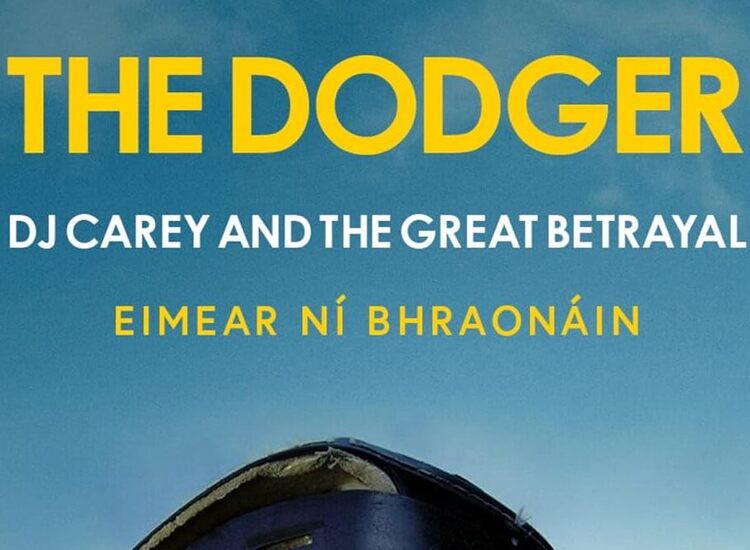Who knew tin had this much potential?
By Daniel Neely
On Dec. 10, button accordion player Séagda Coyle’s family lost their Yonkers home to fire. Many readers will recognize Séagda as the leader of the New York Ceili Band (of which I was a member) and for his recent debut CD “Rip the Bellows,” which has received steady radio airplay, especially in New York, since its release this past fall. The outpouring of support people have shown the Coyle family has been impressive thus far, and it will continue this Sunday, Jan. 7, in a massive fundraising concert and session at the Rambling House on Katonah Ave. in Woodlawn. Groups scheduled to appear include the Erin Loughran School of Music, the Ceol Na Gcroi Ceili Band, the Pride of Moyvane Ceili Band, and the New York Ceili Band and members of the bands Celtic Cross, the McLean Avenue Band, Jameson’s Revenge, and the Narrowbacks, will be there to perform as well. In addition, many of the tri-state area’s finest traditional musicians have said they will be there for a session that’ll take place in the Rambling House’s bar. It promises to be a great day of music in support of one of New York’s favorite young musicians and his family. Music starts at 1 p.m., $20 suggested donation, hope to see you all there!
In the CD player this week is Damien McGeehan’s album “The Tin Fiddle.” McGeehan is a brilliant fiddle player from Co. Donegal and among other things is a member of the trio Fidil. On this aptly-named album, he plays a fiddle with a body made from sheet tin. Borne out of necessity, the tin fiddle is an instrument with a long and fascinating history that well known to the Donegal tradition. It’s this history that McGeehan’s tapped into and the results are fairly stunning.
The tin fiddle was introduced at a time when conventional instruments were scarce and was primarily known to Donegal via traveling tinsmith-musicians. John and Mickey Doherty were two of its most important proponents and the instruments they made were known for a characteristic yet gentle sound.
The instrument’s possibilities are quite surprising. A quick listen to McGeehan’s CD reveals it’s a collection of rich multi-instrumental textures and deeply inventive grooves. The music here really breathes, which is why it might surprise some to learn that McGeehan is the only player on the album. But it’s not just that: McGeehan created every sound on the album was created using a tin fiddle. Melodies, harmonies, drones, strums, and percussion sounds, all – the range of sounds the instrument produces and McGeehan’s ability to not only hear them but make them sound musical together is pretty incredible. Who knew tin had this much potential?
The music here is a mix of traditional Donegal and newly composed tunes. McGeehan is able to integrate the old and new fairly seamlessly, largely because the collection’s focus on (or perhaps better put, reevaluation of) this idiosyncratic musical object affords him the opportunity to be a bit more experimental with form while keeping an ear to what one might consider a “traditional” sound.
Take “O'Rourke's Highland,” the opening track, where we’re introduced to a fairly wide palette of musical sounding. The tune is a McGeehan original (although you might not know it) and his delivery is variegated and nuanced. The arrangement nests the tune in this kind of dream-like groove built out of tin fiddle sounds and it’s amazing. “The Anvil,” a percussion track and “The Tinsmith,” which, like “O’Rourke's," is presented less as a dance tune and more of a programmatic piece that unfolds as if to reveal a romantic drama of some sort, are a matched pair of McGeehan originals that run one into the next. It’s amazing that something that sounds so modern and forward reaching is completely the product of an instrument with such a humble background. Compare these modern takes, then, to the reel “The Gravel Walks to Grannie” or “Paddy’s Rambles Through the Park,” a traditional air from the playing of John Doherty, which not only revel in a traditional sound, but again reveal the instrument’s surprising depth.
Musically adventurous, this album is superbly executed and distinctive in its overall sound. It stands strong as a work of artistic imagination, but also as an explorative reflection on Irish music history. (The booklet includes a fascinating essay on the Donegal tin fiddle by Caoimhín Mac Aoidh that does a quite nice job of telling its story in short form.) This is an album fiddle players will want to hear, but it’ll appeal to anyone who loves traditional music because it’s an easy listener. Don’t let the “tin” in the title fool you, as this isn’t a nasty, tinny sort of album. Rather, it’s quite seemly all around, with a sort of *woody* quality about it from start to finish. Recommended! For more info and to purchase, visit www.damienmcgeehan.com.








